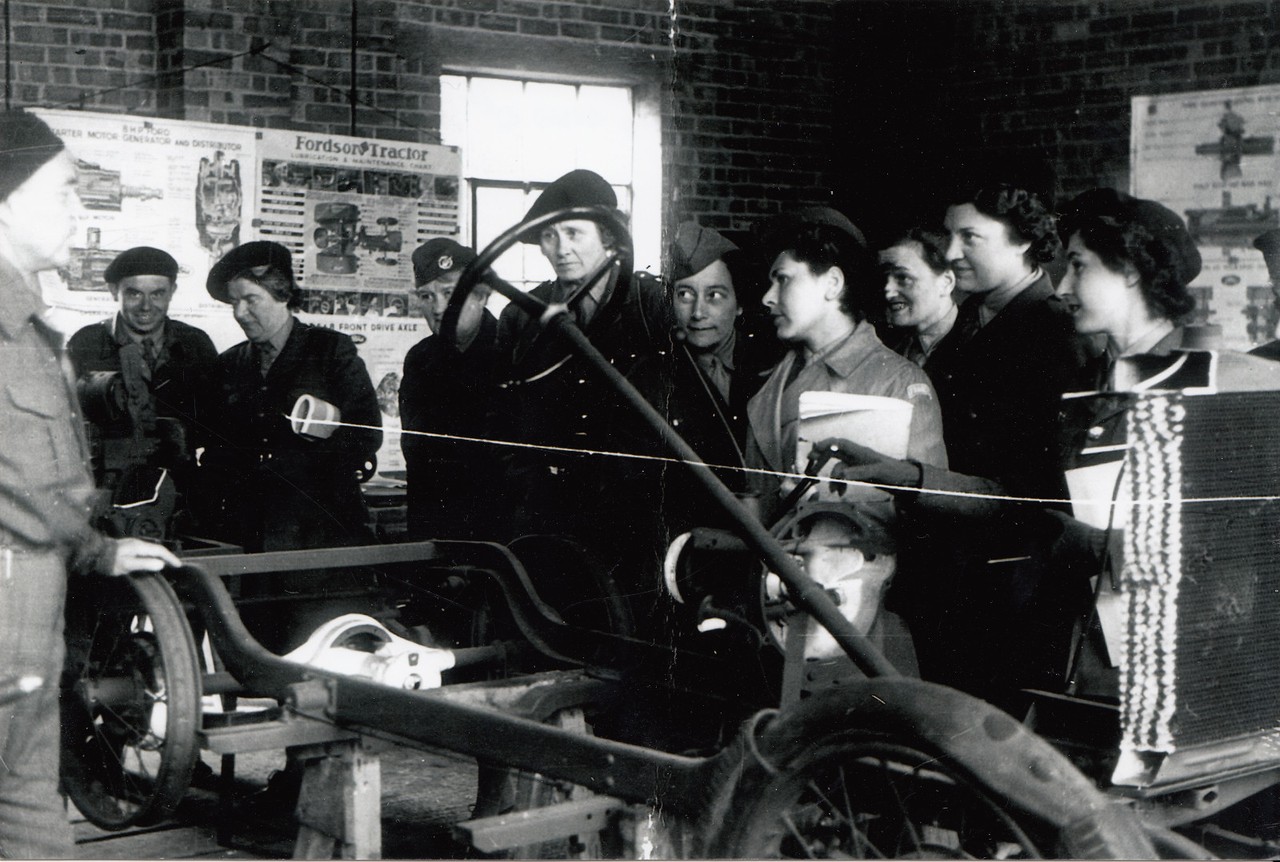Born in 1924, of Jewish faith, Jacqueline was first evacuated from Paris in 1940 to the region of Aubusson and then to the south of France, to get closer to the Pyrenean border. Via Spain and Portugal, she travelled to the United States, where part of her family already lived.
After several months, her new life as a university student was already not enough for her.
In October 1943, she chose to join the ranks of Free France in New York, following the example of her elder brother who, after joining the United States, joined De Gaulle’s army in 1942.
Embarked aboard the Queen Elisabeth in January 1944, she arrived in Scotland before being directed to London, where she asked to be posted to the Military Mission for Administrative Liaison to become a liaison officer.
She thus joined the women’s section of the MMLA, already formed since autumn 1943 and composed.
From February 1944, Jacqueline Simon followed a training for three weeks with the women’s branch of the British Army, the ATS, before taking courses as an officer in June 1944. Among the subjects were history, the French Resistance, geography and French administration.
After 6 June 1944, Jacqueline was prepared for an imminent landing in France.
Around 29 June 1944, 60 women were directed to Camberley, before embarking at Portsmouth. Aboard a ship carrying troops, they made their way to Normandy. On June 30, they set foot in Ver-sur-Mer at a place called Mont-Fleury. Immediately welcomed by Deputy Prefect Raymond Triboulet, they were taken to Bayeux.
The liberated city of Bayeux, the first relief centre for the wounded in Normandy, had also become an essential gateway for logistics between Arromanches and Ouistreham. Women volunteers settled in the premises of the minor seminary transformed into a military hospital.
The mission of the liaison teams was clear: to help the civilian populations in need, providing social assistance, moral support and medical aid. The task was immense. The civilians gradually returned to their homes at the beginning of June 1944 as the liberation and the advance of the front progressed, but cities and villages were often nothing more than ruins.
Jacqueline remained in Normandy until the end of the fighting in the Falaise Pocket.
After the liberation of Paris, she was assigned to a new mission within the American 3rd Army in eastern France to take care of civilian populations and the recently released prisoners and deportees.
Jacqueline Simon was repatriated to France to be demobilised in October 1945.
Jacqueline Simon is now a boarder at Les Invalides in Paris.
